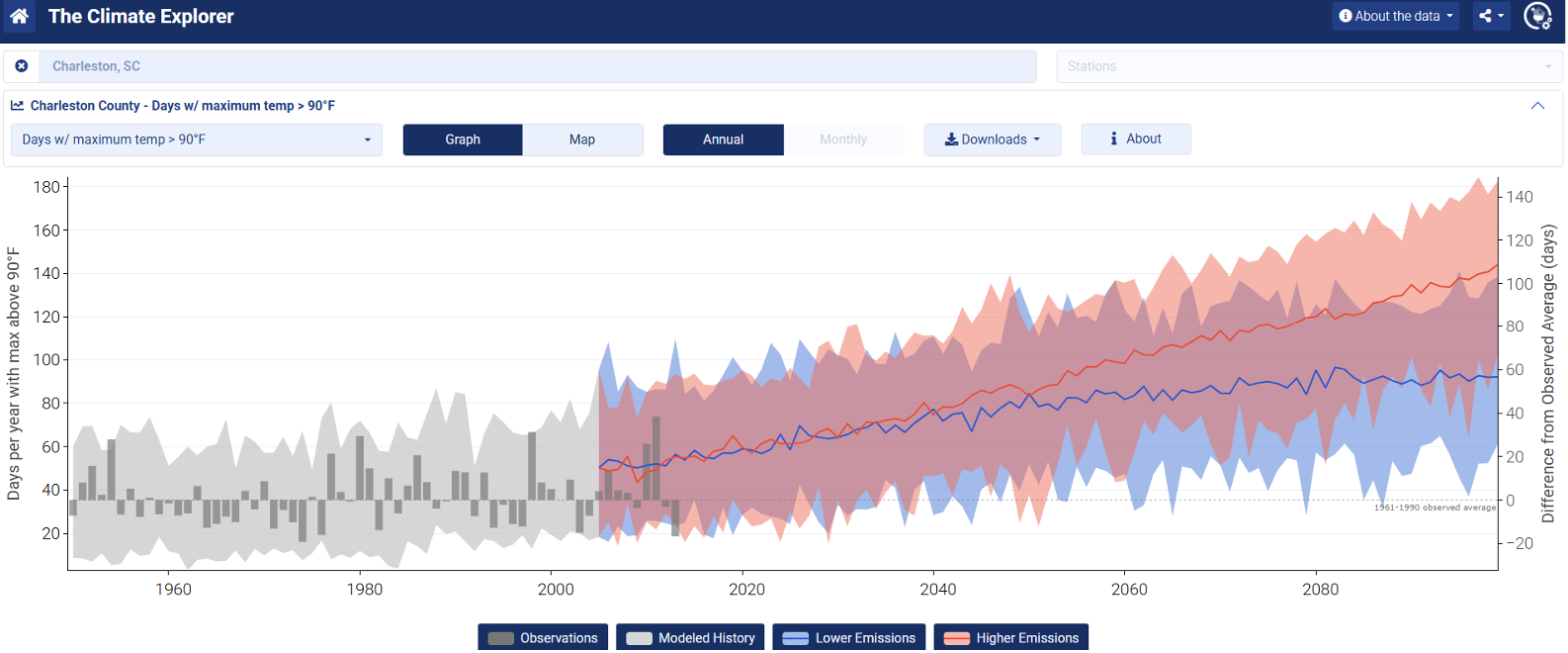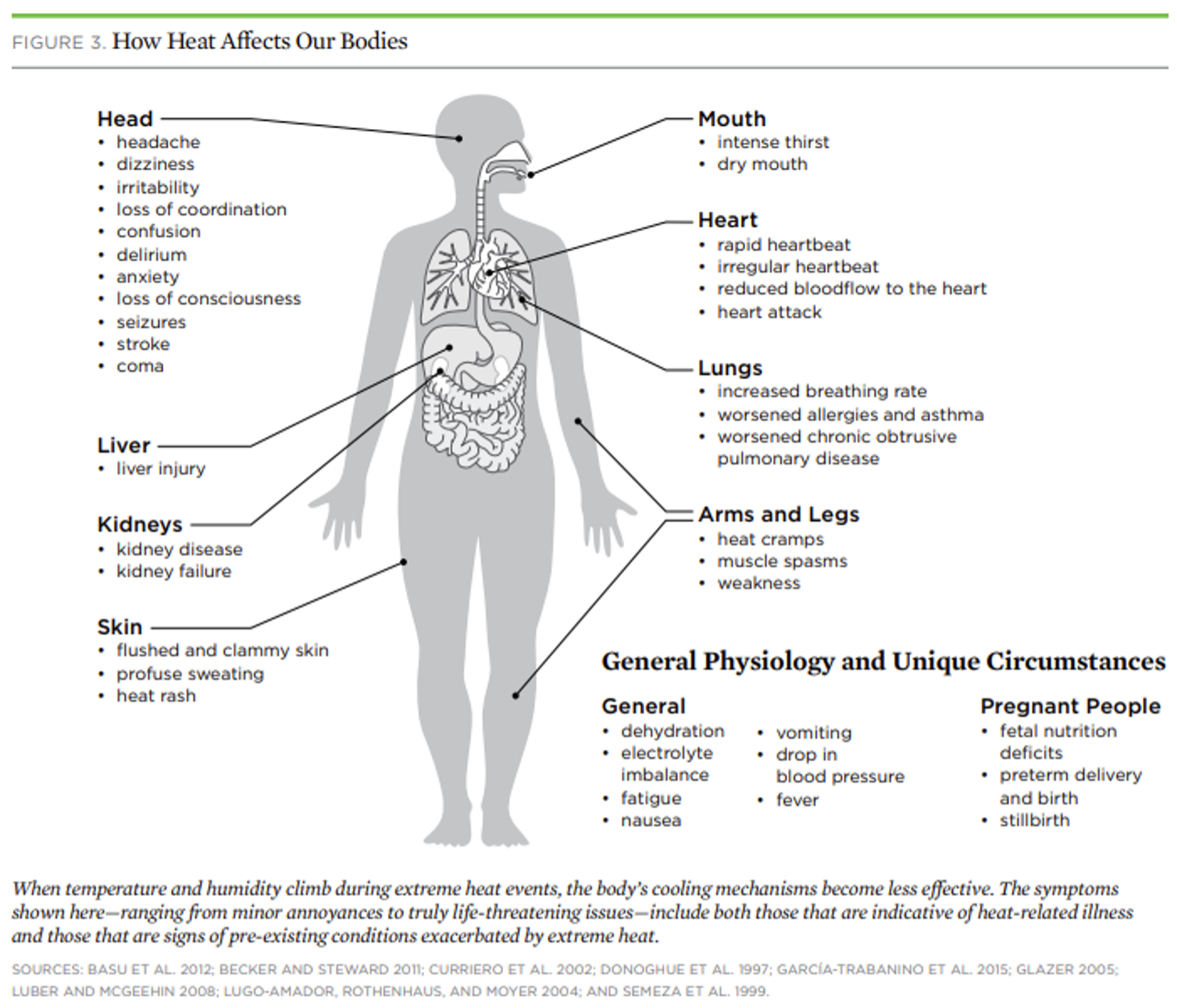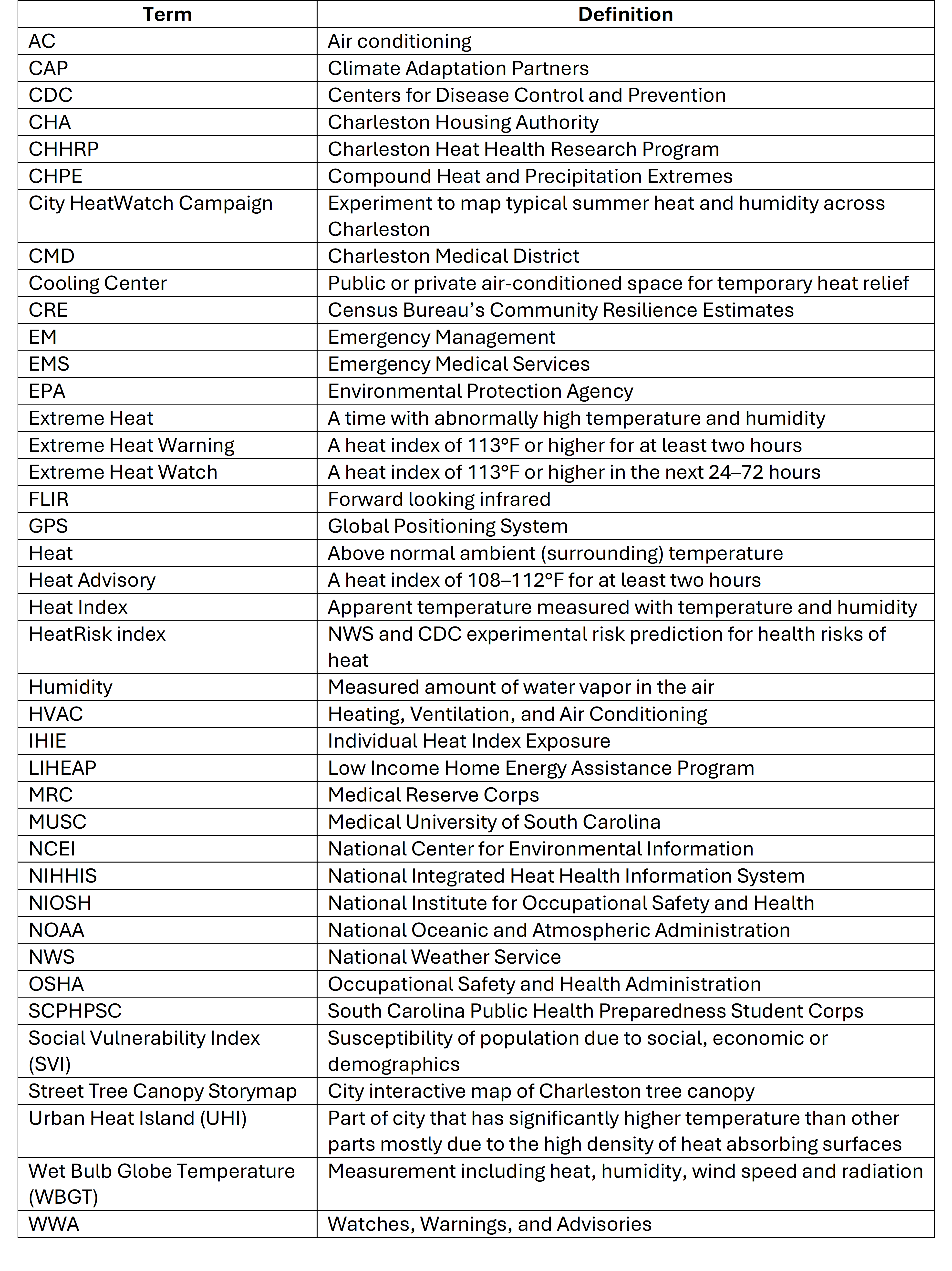Dedication: This toolkit is dedicated to Dale Morris (1960-2025), an internationally-recognized resilience expert and founding member of the Charleston Heat Health Research Project, who facilitated and contributed to this work and its connection to Charleston’s broader resilience efforts. His vision, leadership, and empathy continue to inspire the authors of the toolkit.
The purpose of the Lowcountry Heat Action Plan Toolkit is to clearly identify heat as a health risk and to present knowledge and tools that people can use to make them safer in the face of extreme heat events. The collaborators on this toolkit have partnered with other cities, especially Las Vegas, Phoenix, and Miami, in identifying tools that have been effective in extreme heat situations and have also conducted independent research on extreme heat and health in the Lowcountry since 2020. This toolkit is a dynamic document that will be updated periodically when new data or lessons learned become available.
- Temperatures are increasing! The Lowcountry has more extreme heat days and more frequent and longer heat waves (Figure 1).
- Extreme heat already impacts, and will increasingly impact, Lowcountry resident health.
- Preparations for extreme heat include raising awareness, providing coping resources, mitigating heat impacts and developing adaptation strategies.
- Resources include community notifications, recommended household preparations and ongoing operational adjustments before, during and after an extreme heat event.

The Lowcountry Heat Action Plan Toolkit provides guidance and case studies on how to address extreme heat. It draws from our local knowledge as well as lessons learned in best practices elsewhere.
Why should we be concerned about heat?
Lowcountry temperatures continue to rise, worsening direct effects to families (e.g. increasing utility bills) and amplifying indirect effects (e.g. increasing energy insecurity or increasing emergency room visits). Mitigating extreme heat impacts can help families better adapt, ultimately reducing the long-term effects associated with heat exposure (Figure 2). Extreme heat requires our whole community to understand its interrelated risks and to work collectively to reduce those risks.

What is the Lowcountry Heat Action Plan Toolkit?
The Lowcountry Heat Action Plan Toolkit summarizes our existing experiences with, and projected future with, extreme heat and its health effects. It also identifies various available resources to reduce extreme heat effects. The Toolkit raises awareness of our heat-related health risks and our collective work to address those risks.
How can you get involved?
The Lowcountry Heat Action Plan team welcomes everyone’s input. Whether individuals, community-based organizations, institutional or municipal leaders, or researchers, we are truly in this together. If you have ideas to share, want to participate in our monthly meetings, or want to learn more, please reach out to the Citadel James B. Near Center for Climate Studies at citadelclimate@citadel.edu. To connect with other collaborators, see the Acknowledgements for contact information.
Who else is working on the Toolkit?
The Lowcountry Heat Action Plan Toolkit represents the work of the Charleston Heat Health Research Program (CHHRP) team and a growing group of collaborators, including The Citadel James B. Near Center for Climate Studies, South Carolina Sea Grant Consortium, National Oceanic and Atmospheric Administration (NOAA), the National Weather Service (NWS) Charleston Office, the Medical University of South Carolina (MUSC), the University of South Carolina (USC), the University of North Carolina, North Carolina State University, Appalachian State University, the College of Charleston, the City of Charleston, the Town of Mount Pleasant, Richland County, the State of South Carolina Climatology Office, Charleston Housing Authority (CHA), Climate Adaptation Partners (CAP) and Hamilton Advisors. This collaboration started in 2020 with initial work at the Charleston Medical District and continues to welcome additional partners as new studies, pilot programs, and community interests increase.
Glossary of Terms

- [1] Union of Concerned Scientists Killer Heat Analysis https://www.ucsusa.org/sites/default/files/attach/2019/07/killer-heat-analysis-full-report.pdf
- [2] Union of Concerned Scientists (2019) Killer Heat in the United States. https://www.ucs.org/sites/default/files/attach/2019/07/killer-heat-analysis-full-report.pdf
